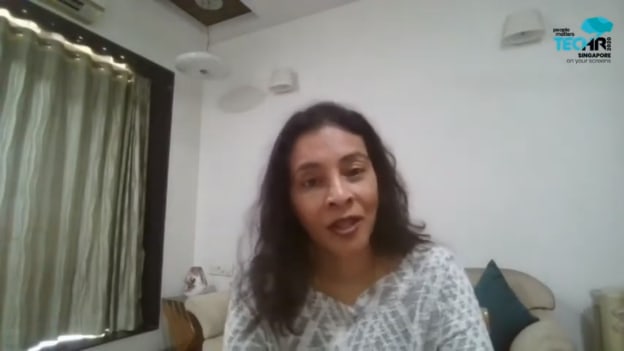Reinventing work for the distributed workforce

Among all the changes accelerated by the pandemic is also the increased acceptance of remote working. Leaders and organizations have realized that this work arrangement is possible, workable, it can deliver results, in fact, it has many other benefits.
Aruna Jayanthi, MD, APAC and Latin America, Capgemini said, “For a company like us in consulting, remote working was already a reality. However, when we talk to our customers, they do have some reservations. But now those concerns are rapidly disappearing and people are accepting remote working as a way of working.”
As per the latest research by Capgemini, among the top priorities for talent leaders, topmost was ‘moving to a distributed workforce’ (56 percent). In Singapore and India more than two thirds of executives showed this sentiment. With remorse working and distributed workforce being the new reality of work, how can organizations reinvent themselves to ensure improved efficiency, sustainability, trust, and engagement?
Addressing the talent question
Jayanthi emphasized how the possibility of remote working gives us the opportunity to widen the spectrum of talent search. Organizations are no longer restricted to a particular location to hire the right talent, they can now focus more on hiring for relevant skills and get the best of the best people from around the world.
But having said that, on the flip side, remote working also means more virtual interactions and more screen time, this may lead to digital fatigue. To address this Jayanthi suggested we have to redefine social rituals like watercooler conversations, one on one interactions, and offsites.
Further, she talked about the social contract. As an employer, it is a responsibility of the employer to provide fair compensation and benefits, a good work environment, and so on. On the other hand, employees have the responsibility to provide loyalty, commitment, and a fair quality of work. But now with the new working environment for a distributed workforce, this social contract also gets redefined.
Redefining the social contract at work
Employees have to invest over and above and go beyond to ensure that the work environment is effective enough to support the employees. For instance, many organizations like Google went the extra mile and introduced additional benefits for people working remotely. Whether it is ensuring a robust IT infrastructure to facilitate remote working or introducing more flexibility to help with work-life balance, the employers have to work on building a better working environment for a distributed workforce.
A major part of building this effective work environment entails redesigning talent processes: How do you onboard? How do you measure performance? How do you compensate and reward? The focus will be more on accelerating output and productivity, keeping in mind employees' well-being as well.
Redesigning the operating model with workplace digitization
The acceptance of remote working wouldn’t have been possible without technology. Organizations with strong tech infrastructure in place are better placed to reap the benefits of remote working. In fact, as Jayanthi highlighted, the distributed work environment is not restricted to the workforce alone, it also includes the distributed customers.
The new reality of work has widened the access of not only talent but also vendors and customers, thus, disrupting the entire operating model. To redesign the operating model organizations have to relook at the way they leverage technology. They have to truly go digital and this doesn’t mean only increasing the use of digital tools and solutions but also changing the way they interact, communicate and deliver business value. The entire ecosystem and culture also gets redesigned.
“To become more digital we have to look at ways to reorganize and reshape customer processes, supply chain processes, in addition to talent processes,” said Jayanthi.

















